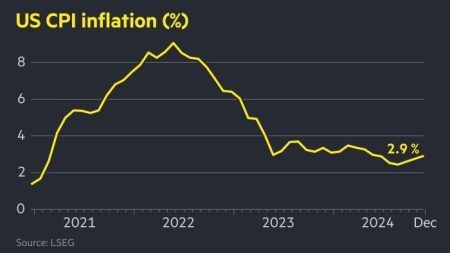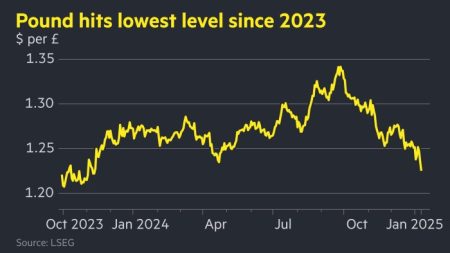Unlock the White House Watch newsletter for free
Your guide to what the 2024 US election means for Washington and the world
It is not yet clear that the Gaza ceasefire will even come into force. But, if the war is indeed ending, what has it meant for the world?
For Israel, the impact seems double-edged. The country’s leader, Benjamin Netanyahu, can argue that he has turned a national tragedy into a strategic victory. Hamas has been devastated, if not entirely destroyed. Hizbollah, the Lebanese militant group that was the most heavily armed and threatening part of Iran’s “axis of resistance”, has also been debilitated. Iran and Israel have exchanged direct fire. But most of Iran’s missiles failed to get through the defences of Israel and its allies — and the Islamic republic looks in a weaker position than for many decades.
On the strategic level, Israel is emerging from this conflict as the superpower of the Middle East — with its military deterrence fully restored and its enemies in disarray. But set against that, Israel has suffered enormous reputational damage. Some 46,000 people are believed to have been killed during Israel’s offensive and Gaza lies in ruins. Netanyahu has been indicted by the International Criminal Court on war crimes charges — which places him in the same legal bracket as Vladimir Putin. Like the Russian leader, Netanyahu will now find it much harder to travel internationally.
Israel’s popularity has plummeted in international opinion polls. Young people — even in the US — are now much more hostile to the country. A Pew survey in April concluded that: “Younger Americans are more likely to sympathise with the Palestinian people than the Israeli people.” A third of adults under 30 said their sympathies lay either entirely or mostly with the Palestinian people, compared with 14 per cent siding with Israel.
The Israelis can hope that opinions will soften over time — particularly if peace is restored. Netanyahu and his allies also believe that friends in the White House will matter much more than enemies on American campuses.
But Trump’s friendship may not be unconditional. There is a palpable shock on the Israeli far right that the incoming US administration has put its weight behind a ceasefire and hostage-release deal that was negotiated by the Biden White House. Hopes in Israel that Trump would give it a completely free hand to deal with the Palestinians, as it sees fit, have taken a knock.
Trump’s decision to press hard for peace now may reflect two main factors. The first is his desire to take credit for a deal and hostage releases. The second is that — while Israel enjoys ardent support on the Republican right — it is not the only important country in the region. During his first presidency, Trump’s first trip overseas was to Saudi Arabia.
The incoming Trump administration is now likely to push for the normalisation of relations between Israel and Saudi Arabia — which was also a major goal of the Biden administration. Potentially, this offers a scintilla of hope to the Palestinians, since it is widely believed that the Saudi price for normalisation would be tangible progress towards a Palestinian state. However, that might well be a price that the Israelis are unwilling to pay, which could mean that the Saudi-Israel deal remains a mirage.
The war in Gaza has also had a global, as well as a regional significance. One of the reasons that the US and its western allies have been reluctant to put too much pressure on Israel is their belief that Iran is a common enemy. Over the past year, western officials have spoken increasingly frequently about their belief that they are now waging a global struggle against a loose “axis of adversaries” made up of Russia, China, Iran and North Korea.
By weakening Iran, Israel has also weakened that axis. The fall of the Assad regime in Syria was, in large part, a knock-on effect of Israel’s devastating assault on Hizbollah, which was a key ally of Bashar al-Assad.
The collapse of Assad’s power was, in turn, a significant blow for both Iran and Russia, which had intervened militarily on his behalf. Russia was using Syria as a base for power projection and now has to step back. Paradoxically, Israel itself has had a much more cautious response to the fall of Assad than many in the west, fearing that jihadist forces will move into the power vacuum in Syria.
A final casualty of the Gaza war has been the “international rules-based order” promoted by the Biden administration. Sympathy and support for Israel after the October 7 attacks led the US to tolerate frequent violations of international humanitarian law during Israel’s onslaught on Gaza. Putting the rules-based order back together again could be just as hard as the physical reconstruction of Gaza.
Read the full article here













